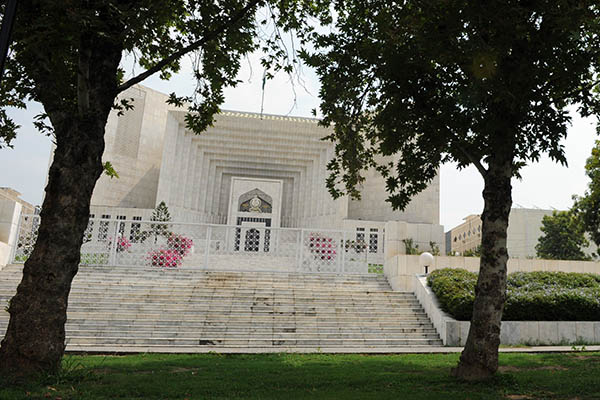
Aamir Qureshi—AFP
Parliament should address the genuine concerns of the courts.
The National Assembly’s standing committee on law and justice rejected a bill Monday to increase the number of Supreme Court judges from 17 to 26. Chairman Chaudhry Mahmood Bashir Virk, who belongs to the ruling Pakistan Muslim League (Nawaz), had this to say: “Superior court judges, instead of doing their job, are more interested in social and political cases as those become the lead stories of newspapers.”
Virk was referring to the hyper-populism embraced by the Supreme Court under controversial former chief justice Iftikhar Chaudhry, who took a record estimated 6,000 suo motu notices in the garb of public-interest litigation to paralyze the Pakistan Peoples Party-led government. Chaudhry’s penchant for populism was assailed by highly regarded lawyers like Abid Hassan Minto, Aitzaz Ahsan, and Asma Jahangir. Chaudhry was accused of politicizing the judiciary and imitating Indian judges who were busy “arranging university entrance exams and hospital routines” through the suo motu device.
The startling pendency of cases in India was often attributed to public-interest litigation, until the courts self-corrected in 2010 by giving up suo motu jurisdiction. It seems the damage was nevertheless done. Recently, when India’s chief justice wept while addressing Prime Minister Narendra Modi about the shortage of judges and asked the number be doubled to 40,000 to reduce the backlog, he drew a less than enthusiastic response.
The reaction against activist judges is mostly based on their over-articulation of obiter dicta remarks quoted in the press. It is unfortunate that this has happened. The honorable judges speaking on social occasions express their genuinely felt concern about governance, which should not be taken amiss. On the other hand, judicial ethic demands that judges shun public occasions and express their opinion only through their verdicts. It is clear that politicians in Parliament represent the people and must make the laws for the courts to adjudicate. But, beyond personal offense, the Supreme Court must be helped to dispose piled-up cases.
